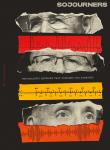PRESIDENT TRUMP SPENT a large portion of his State of the Union speech in February touting his economic accomplishments, including cutting taxes and “job-killing regulations.” But what has America gotten in exchange for the 2017 Republican tax overhaul?
First, 2018 showed the largest drop in household charitable contributions since the Great Recession and the first drop in more than five years. Despite steady economic growth over the past 10 years and a more than 5 percent increase in individual giving the year before, this dramatic decline has left many organizations—including local churches, food pantries, and homelessness services—struggling to meet the needs of those they serve.
The Republican-passed Tax Cuts and Jobs Act of 2017 was the most sweeping overhaul to the federal tax code in decades. Among other things, it doubled the standard deduction. It is no longer cost-effective for most Americans to itemize donations. This creates a “giving gap” between middle-class donors and ultra-wealthy donors.
Even some Republicans found these changes controversial. They were unable to hide that most benefits would accrue to Americans with incomes in the top 5 percent.
To put that in real numbers: Households with annual incomes of $733,000 and up (the top 1 percent of Americans) are receiving a tax cut of around $50,000. Those making between $308,000 and $733,000 saw the biggest tax benefit (as a percentage) and receive a break of $11,000 or more. Households making less than $86,000 a year receive less than an $800 tax break. Americans in the bottom half of incomes are made poorer relative to those in the top half.
Second, political elites continue to push the fallacy of “trickle-down economics,” suggesting that lower-income Americans are better off when the richest do well. This has never been borne out by any data or experience.
Wealth and income disparities are at near-record highs. More than 75 percent of Americans report that they are living paycheck to paycheck and nearly half say they could not afford an unbudgeted $500 expense. Americans increasingly are left behind by an economy that does not serve them and a shift toward automatization that does not employ them. This is a two-fisted punch from ultra-wealthy corporate investors pushing technology designed to “reduce their labor costs”—jobs for people. And what’s funding this process? The tax breaks Republicans claim will help the very people this process is making redundant.
Finally, the Trump tax cut is paid for by deficit spending. Almost single-handedly it has forced the annual deficit to rise to more than $1 trillion. Deficits like this are extremely dangerous. They make it harder for the government to respond to public health, natural, and financial disasters—the very thing a government is supposed to do.
My prediction is that whenever Democrats are back “in control,” the Republicans will, like clockwork, care again about the national debt and will use the massive deficit—caused by their own tax cuts—to justify slashing funding for infrastructure, jobs, and social programs that serve poor and working families.
The Republican tax overhaul, coupled with the inevitable return of deficit hawks fixated on cutting social programs, negatively impacts those most in need of economic stability. In the turmoil, the financially vulnerable will look to nonprofits, churches, and direct-service providers for help to provide for themselves and their families, and to live with dignity despite unfair circumstances. But will our churches and nonprofits—now experiencing massive shortfalls in funding brought about by the massive decline in donations due to the tax overhaul—be able to meet those needs?

Got something to say about what you're reading? We value your feedback!






